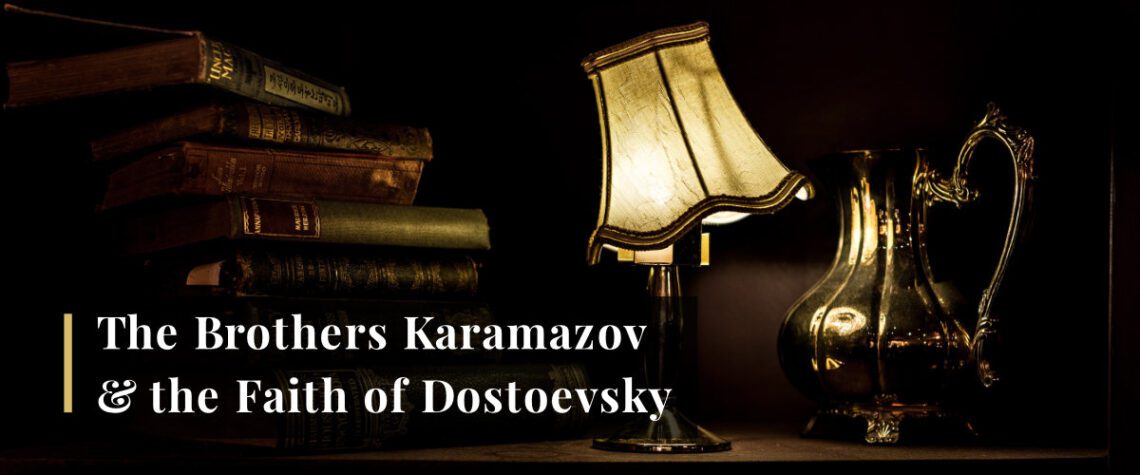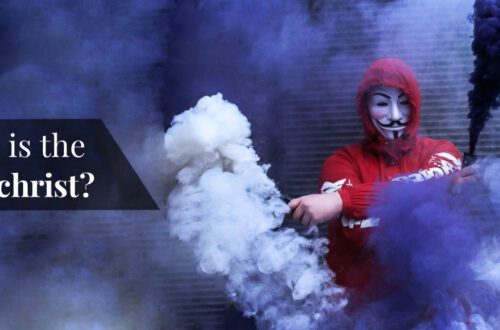
The Brothers Karamazov and the Faith of Fyodor Dostoevsky
The Brothers Karamazov is an epic classic Russian novel, set in nineteenth century Russia, concerning the riotous Karamazov family and the murder of their heinous father. It’s a complex theological drama, diving into questions of faith, doubt, justice, revenge, repentance and forgiveness, all set in the mystery of which Karamazov killed their father.
This was the last novel by Fyodor Dostoevsky, who died less than four months after its publication and literary authorities acclaim it as one of the supreme achievements in global literature. Dostoevsky mines questions of faith from all perspectives, from the cantankerous atheist, the naïve believer, the doubter and the backslider returning to God.
One principle theme concerns the power of Christianity to redeem society and how the lack of faith leads to its destruction. ‘If there is no God, everything is permitted,’ is a central argument and in this case, it’s murder.
Now Cain rose up against Abel his brother and killed him. Then the Lord said to Cain, “Where is Abel your brother?” He said, “I do not know. Am I my brother’s keeper?” And He said, “What have you done? The voice of your brother’s blood cries out to Me from the ground
– Genesis 4:8-10
Dostoevsky asks why is murder wrong, if there is no God? Today, we fear life in prison for a heinous crime, but what did it matter in parts of lawless Russia? It was a burning question for Russians, as the author foreshadows the calamity of the twentieth century, with the coming bitter empire of the USSR, with its death squads, murder camps and mass killings. Stalin felt free to execute whomsoever he wanted because ‘it was for the greater good,’ and he was not answerable to God.
As an evangelical believer, who studied theology at Bible College decades ago, I found recently reading Dostoyevsky’s questions about faith sagacious. It’s a momentous work of philosophical, practical and personal theology. He asks questions about healing, miracles, forgiveness, the afterlife and the impact of Christianity upon society – all without wearying you with lifeless systematic theology. It’s more the Book of Job than delving into the depths of Hebrews. It’s ‘Why?’ instead of, ‘This is what it means.’
What a book the Bible is, what a miracle, what strength is given with it to man! It is like a mold cast of the world and man and human nature, everything is there, and a law for everything for all the ages. And what mysteries are solved and revealed!
– The Brothers Karamazov by Fyodor Dostoevsky
It surprises me how Dostoyevsky’s writings are quoted by believers and atheists alike to confirm their beliefs. To the cynical, he tears into religious institutions and proves that faith is worthless. For the believer in Christ, he addresses the long, winding journey that faith bears us on. Faith in God is not a destination to reach, but a journey through valleys, fields, mountain tops, deserts, streams and sombre forests, to the promise of eternal paradise.
Look around you at the gifts of God, the clear sky, the pure air, the tender grass, the birds; nature is beautiful and sinless, and we, only we, are sinful and foolish, and we don’t understand that life is Heaven, for we have only to understand that and it will at once be fulfilled in all its beauty, we shall embrace each other and weep
– The Brothers Karamazov by Fyodor Dostoevsky
Fyodor Dostoyevsky was a devout believer in the Russian Orthodox Church who departed from his faith, fell deep into sin and returned to God at the end of his life. As a Russian, he was both critical and admired the ‘heretical West’ for its faith and scientific legacy; he provides a doorway into Russian thought. This his final book, mirrors his journey from a young believer to a backslider, from worldly cynic to bitter atheist and slowly, he returns to faith in Christ.
Fear nothing and never be afraid; and don’t fret. If only your penitence fail not, God will forgive all. There is no sin, and there can be no sin on all the earth, which the Lord will not forgive to the truly repentant! Man cannot commit a sin so great as to exhaust the infinite love of God
– The Brothers Karamazov by Fyodor Dostoevsky
The Brothers Karamazov is an epic read that asks much of its reader and gives bounteously in return. Dostoyevsky was a shrewd negotiator who forged a deal where he was compensated per word. In response, he delivered an epic masterpiece containing 824 pages and 206,000 words. If you invest time for poignant reflection, you could spend 30 hours devouring it or a speed reader could take half the time, missing the point.
Love is such a priceless treasure that you can redeem the whole world by it and expiate not only your own sins but the sins of others
– The Brothers Karamazov by Fyodor Dostoevsky
I heard my thoughts calling this eloquent book ‘self-indulgent’ with its twists and turns to unveil the life stories of minor characters (who secure a book within a book to themselves) and then I’m suddenly thunderstruck by the wonder. The fates of brothers Karamazov are in many ways, incidental to the fate and faith of the reader.
Christ is with you. Do not abandon Him and He will not abandon you
– The Brothers Karamazov by Fyodor Dostoevsky
Reading The Brothers Karamazov is comparatively like my lingering journey on the Trans-Siberian Railway across Russia to Moscow. As a Brit, you can’t just visit Russia at will; you have to battle with bureaucrats, prepare and struggle. Nothing is easy. The journey is lengthy, with many twists and turns, and as day after night repeatedly passes in turn, it feels prolonged and breathtaking.
Blessed are the peacemakers, for they shall be called sons of God
– Matthew 5:9
In this book, Dostoyevsky mourns the repeating history of “calamities which overtook Russia,” and as I look back on my journey across Russia and into Ukraine, I think about the war taking place today and sigh.
By Paul Backholer. Find out about Paul’s books here.




